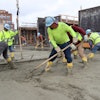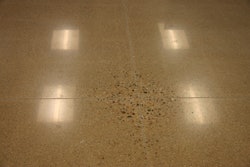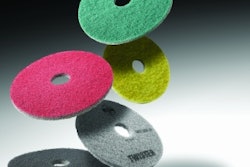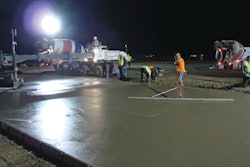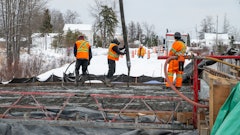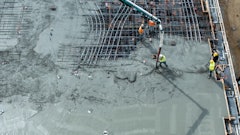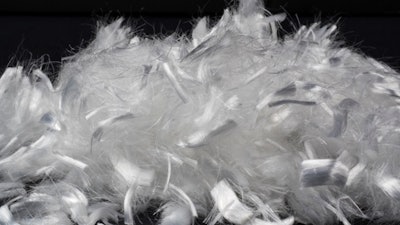
As the construction industry gets bigger, with ever larger buildings and ever greater projects, the technology at its heart is getting smaller and smaller.
This is especially true of the chemicals, fibers and admixtures that strengthen, repair, fortify and enhance the vast quantities of concrete required for today’s skyscrapers, stadiums and super structures.
Few manufacturers know this as well as The Euclid Chemical Company, which is at the cutting edge of microscopic technologies that have been embraced by the global construction sector.
Euclid Chemical’s Senior Product Marketing Manager of Construction Products, Jennifer Crisman says, “At Euclid Chemical we are always striving to make construction products stronger, smarter, safer and superior compared to what they were yesterday. This often means breaking them down at practically a molecular level and asking ourselves, what can we change or add to make this element of the construction world fit for today’s industry.”
One of Euclid Chemical’s latest advances in this field is micro-fiber technology that is able to achieve a low-shrinkage, highly durable concrete repair mortar. A key talking point at World of Concrete 2018, this is an important advance due in large part to the sheer scale of aging concrete - in fact the annual cost for repair, protection and strengthening of concrete in the United States is estimated to be USD 18-22 billion!
Traditional concrete repair mortars often fail because they are constrained by the surrounding concrete. Portland cement-based materials shrink when they dry, resulting in internal stress which is relieved by cracking as soon as this stress exceeds the tensile strength of the repair material.
To overcome this issue, Euclid Chemical has formulated a concrete repair mortar that uses monofilament, polypropylene micro-fibers to significantly reduce the risk of cracking. These tiny fibers, distributed throughout the repair mortar, enhance the four key properties of the material that cause traditional materials to crack (tensile strength, modulus of elasticity, tensile creep and drying shrinkage rate).
Euclid Chemical’s fibers safeguard the repair mortar right from application, as when the mortar is fresh its tensile strength is at its lowest, so the fibers provide a high degree of secondary reinforcement to minimize early cracking. This protection extends throughout the lifecycle of the concrete, mitigating plastic shrinkage-cracking, reducing permeability, and improving its impact and toughness characteristics.
The effectiveness of these micro-fibers is proven through the ASTM C 1581 test, which determines the concrete’s resistance to cracking under restrained shrinkage. In this test, typical ready-mix concrete and standard repair mortars will usually crack within three days – however micro-fiber reinforced mortars can last for over 140 days in the same conditions.
Alongside helping to keep buildings together, Euclid Chemical’s microscopic innovations are also helping to make building sites safer places to work. One of the challenges during construction is the amount of dust kicked up in the general course of construction activity.
Mixing epoxy grouts, a three-component system frequently used to anchor bolts, support base plates and fill in voids, is a common culprit for creating excessive amounts of dust. To help combat this issue, Euclid Chemical developed a unique aggregate processing technology that effectively eliminates the airborne dust released during the grout mixing process.
This dustless technology improves on-site safety and drastically reduces exposure to harmful dust without affecting the performance of the grout.
Jennifer Crisman recently presented on these new technologies at Euclid Group’s World of Concrete 2018 Press Conference Construction Under the Microscope.
